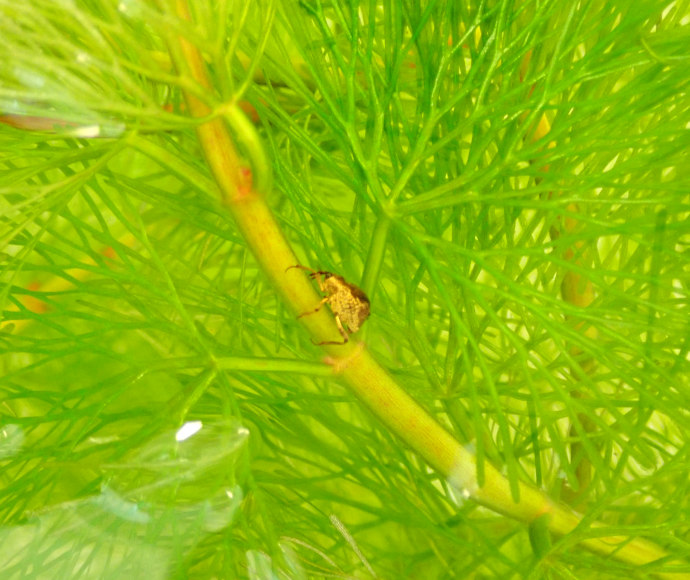New South Wales uses natural enemies to target weeds
The NSW Government is taking action to combat invasive weeds by investing nearly $500,000 into a program that manages 2 Weeds of National Significance with biocontrol agents.
It’s good news for threatened native species and agricultural industries, with invasive weeds costing Australian agriculture industries close to $4.9 billion annually due to loss of production and the expense of managing weeds in crops and pastures.
Biocontrol involves researching then introducing natural enemies of an unwanted weed, such as an insect or fungus, to manage the weed. The method has an increasingly important role as an environmentally friendly, self-sustaining and cost-effective weed management tool.
Funding from the NSW Environmental Trust will see the CSIRO and NSW Department of Primary Industries (DPI) use 2 recently approved biocontrol agents to target 2 weeds.
One biocontrol agent is a weevil (a beetle) targeting cabomba, the other is a fungus which attacks African boxthorn.
Weevils vs cabomba
- Stem-boring weevils (Hydrotimetes natans) will be bred at the DPI’s biocontrol rearing facility in Grafton.
- They will be introduced to 5 nursery sites across New South Wales and the CSIRO will monitor their effect on the sites.
- Cabomba was introduced to Australia in 1967 as an aquarium plant and has since spread along the coast from Cairns to Melbourne, where it can grow up to 5 cm a day.
Fungus vs African boxthorn
- A pathogenic rust fungus (Puccinia rapipes) will be mass-reared in the CSIRO Black Mountain Laboratories in Canberra.
- Fungal spore packages will be sent to community members for release in areas across New South Wales which contain African boxthorn and the CSIRO will monitor damage to the weed.
- African boxthorn is a shrub introduced to Australia in the mid-1800s as a hedge plant.
Following detailed research, testing and risk assessment, the release of these biocontrol agents was approved by the federal Department of Agriculture, Forestry and Fisheries in 2021.
For more information see the CSIRO's page on biocontrol of weeds.
Quote attributable to Minister for the Environment Penny Sharpe:
'Invasive weeds threaten 40% of endangered or vulnerable species and 89% of endangered ecological communities in New South Wales. Biocontrol is the future in combatting these weeds.
'Biocontrol agents can significantly reduce the host weed’s growth and potential to spread further, allowing threatened biodiversity and ecosystems to recover. They also reduce the amount of harmful chemicals being added to the environment.
'When successful, biocontrol is highly cost-effective, with overall economic returns of $23 for every dollar invested.'
